At Tweetspeak, books matter. We host a book club, we review books, and we publish them at TS Poetry Press. We’re dedicated to literacy—for life. And we want to learn from each other about reading in the wild.
Do you want to be a wild reader? Are you reading wildly already? We’re using Donalyn Miller’s Reading in the Wild: The Book Whisperer’s Keys to Cultivating Lifelong Reading Habits to explore what it means to be a wild reader—someone most likely to embrace literacy for life. Read through these 5 characteristics and see which ones fit your reading style and which you might incorporate this month.
5 Main Characteristics of Wild Readers
1. They dedicate time to read.
A good weekend means I’ve set aside a large chunk of time, usually an afternoon, to read a book. For reading emergencies, those unexpected moments of free time, I keep a book on Kindle (I use the app for my phone) and one on Audible (along with earbuds). I prefer to read poetry collections in an actual physical book, although I have read Every Day Poems, which comes to my inbox every weekday, while waiting in line at the grocery store.
How about you? How do you prepare for reading emergencies?
2. They self-select reading material.
It takes approximately three recommendations from different sources before I read a book. The exception to that rule is if I’ve heard a good interview with the author. I also like podcasts that dive into books, especially classics or books outside my regular realm.
In addition to podcasts about books, a lot of other podcasts I regularly consume recommend books or deep-dive articles or essays. That’s how I came across My Family’s Slave by Alex Tizon in The Atlantic, which was the subject of a recent episode of Code Switch. It is a difficult but important read. Essays and articles are an important part of my reading life — I read them because I write them. Often I find them to be better written and more tightly focused than books.
I also follow reading suggestions from blog posts, like Glynn Young’s Saturday Good Reads, and newsletters.
3. They share books and reading with other readers.
My dad always has stacks of books, and I often borrow/steal from him. My daughter and I also share book recommendations, often for poetry. I love it when a friend asks, “What are you reading?” or “I have a book recommendation for you!” Next week I am having lunch with a friend, and I guarantee we will share what books are making us happy.
Earlier this year I began a book club for two, in which my best friend and I read and discuss a chapter a week, following along with the Harry Potter and the Sacred Text podcast. She and I have been friends for 28 years, but sharing a chapter together each week over the phone has made us even closer.
It doesn’t have to be Harry Potter, by the way. In my last Tweetspeak workshop, we read L.L. Barkat’s The Novelist slowly, three chapters at a time. We all agreed we needed more than twelve weeks to adequately cover the 112-page novella.
4. They have reading plans.
Reading plans are a new idea for me because I tend to be impulsive about my book choices. However, I do keep a to-read list, and I’ve been known to peruse the Newbery awards to choose a title.
A confession: I don’t do stacks. I read one book at a time, whether it’s on my bedside table or in my phone. As soon as I ditched the stacks, I finished more books.
The exceptions are that an audio book doesn’t count (so that’s two). A poetry collection doesn’t count either (so that’s three). Neither do picture books.
Once a year I read something long and difficult, usually historical, often for a summer read. Like Lin-Manuel Miranda, I like to take a tome to the beach. However, I do not subsequently write record-breaking musicals. If you have suggestions for my summer big read, please let me know.
5. They show preferences.
Genre-switching is so important. I’ve found that good writing is good writing, and it can exist in places off my beaten path. So, yes, I’ve read graphic novels. I’ve read thrillers. I love YA.
After I finish a book in one genre, I usually switch to something totally different. So if I have just finished a fantastic mystery by Louise Penny, I will most likely go in a different direction, like to the best book I read last year, the 2015 National Book Award winner for Young People’s Literature, Neil Shusterman’s Challenger Deep.
In the comments section of wild reads for April, I mentioned my favorite book so far this year. As soon as I finished it, I read it again, which I rarely do. It was a National Book Award finalist in 2016, Paulette Jiles’ News of the World.
May’s Pages
Letters to a Young Poet, Ranier Maria Rilke (loan from a friend)
The Art of Fielding, Chad Harbach (novel—“borrowed” from a family member)
The Jubilee, John Blase (poetry. P.S. He loved News of the World too.)
Felicity, Mary Oliver (poetry)
The Happiness Dare, Jennifer Dukes Lee (A note: Jennifer is a friend. A lot of my friends write books. I usually read them.)
Early Readers and Picture Books
Hummingbird Nest: A Journal of Poems, Kristine O’Connell George (library)
Upper Elementary to Middle Grade
Maybe next month.
Sliced (1/4 to 1/2 Only: Got What I Needed and Moved On or Plan to Finish Someday)
& Abandoned (Not My Cup of Tea, It Bogged Down Quickly, or Others Beckoned)
I do slice or abandon books, but not often. Even when I come across a book that is not going the way I had hoped, sometimes finishing it helps me understand why I didn’t like it or how I might have liked it if it were slightly changed.
None this month, in either category.
Started (The Jury is Still Out. Will I Finish?)
The answer on both of these is Yes! Absolutely! And these two books could hardly be more different.
Norse Mythology, Neil Gaiman (retelling of Norse myths)
Zami: A New Spelling of My Name—a Biomythography, Audre Lorde
Your turn
1. Share anything about you and the 5 main wild reader characteristics. How do you display them, or wish you did, or plan to in the future?
2. Share your May pages. Finished, sliced, started, and abandoned are all fair game.
Photo by Alexandre Normand, Creative Commons, via Flickr. Post by Megan Willome, author of The Joy of Poetry.
Browse Reading in the Wild: April’s Pages
_____________
Join an exciting literacy initiative!
“I wish the amount I had to give was as vast as my love for this project. More beauty. More joy. More love. This is how we must move through the world.”
—Holly Grantham, donor
See “Literacy Starts With Love” Now
- Perspective: The Two, The Only: Calvin and Hobbes - December 16, 2022
- Children’s Book Club: A Very Haunted Christmas - December 9, 2022
- By Heart: ‘The night is darkening round me’ by Emily Brontë - December 2, 2022
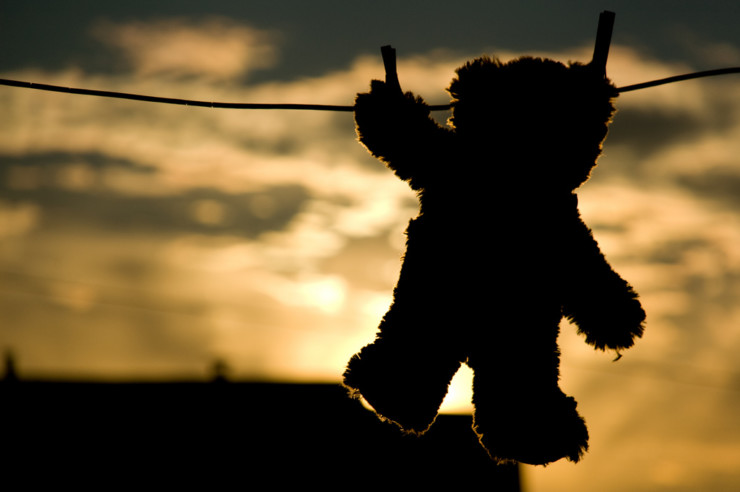
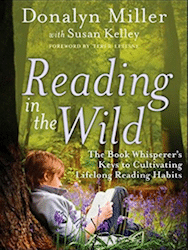
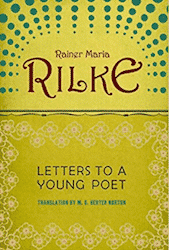
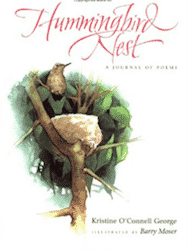
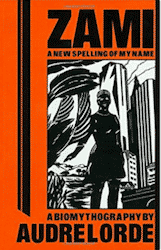
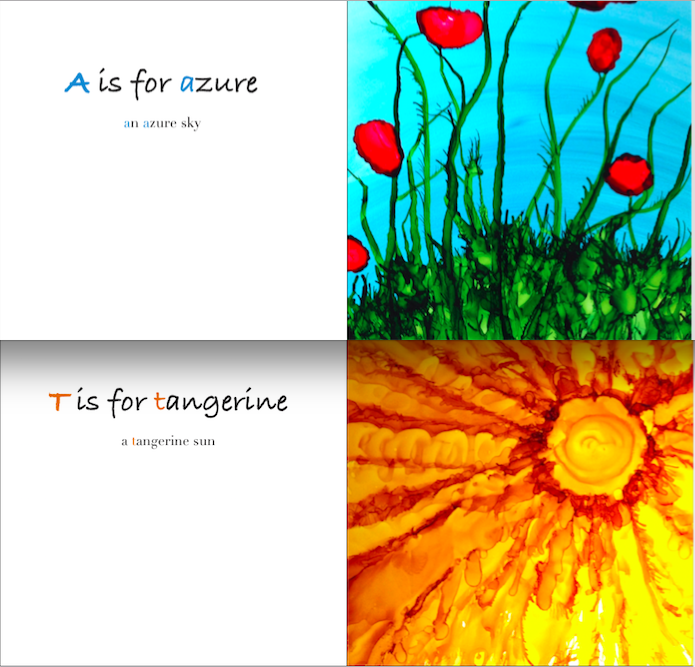
L.L. Barkat says
I couldn’t imagine life without stacks. 🙂 So fascinating to hear about your process!
My May pages were sparse compared to April. But I did read some good children’s & middle grades books:
• A Kiss for Little Bear
• Pieces: A Year in Poems & Quilts (marvelous actual quilt art!)
• East of the Sun, West of the Moon (the ending was so disappointing; she copped out)
• Fortunately, the Milk (speaking of Neil Gaiman! A fun and funny read)
Just two adult books:
•Phonics They Use (this is fantastic; I wish I’d had it years ago)
• A Place to Stand (started this amazing book and considering it for book club here at TSP)
And? Yesterday all I could think about was your upcoming post and the whole “reading emergencies” thing, because I sadly forgot (for the first time in forever) to bring a book to what ended up being a four-hour reading emergency. Sighs. That meant I came home with some new spatulas, potlatch spice, two lipsticks, a gorgeous super-on-sale cashmere and wool sweater… and less $ than I started the day with 😉 ). Which I guess isn’t too awful since I probably haven’t mall-shopped in about 3 years. Still.
Bethany R. says
On-sale sweaters are pretty wonderful, but my heart goes out to you for the reading emergency. 😉
I had fun reading Fortunately the Milk with my son and although we don’t read them much anymore, I loved the Little Bear series. So sweet!
Sandra Heska King says
I love A Kiss for Little Bear. I’ve read it with my kids and grand kids so many times!
Megan Willome says
Potlatch was worth the emergency, in my opinion.
I think what’s great about these pages is not only finding out what different people read, but how they read.
Is “A Place to Stand” by Jimmy Santiago Baca? If so, it looks good and makes me think of the poetry of Reginald Dwayne Betts.
L.L. Barkat says
The very same.
Baca’s story is timely, I think, even though it’s not new. He is a remarkable man who went to hell and back to find the poetry in his soul and become a person who promotes literacy to those who are often denied it or seen as throw-aways. He shows us the depth of the human potential for beauty, despite how lost we can seem (he himself having eventually been lost to the prison system after being abandoned by his mother and father by age 7).
Megan Willome says
Very cool.
Sharon A Gibbs says
My husband and I watched the movie on Amazon this weekend. What a story! When Jimmy was in jail, he burned a stolen book out of anger. Some words on the smoldering page caught his attention and ignited his desire to know more. He hardly knew how to read and write but taught himself with lined paper, pencil, and a dictionary.
“The Sun” published his work while Jimmy was still incarcerated.
My husband googled Jimmy Baca and read some of his poetry online. Now he wants to order one of his books! I love that husband of mine!
L.L., I hope you schedule it for a TSP book club.
Glynn says
May’s reading (heavy month for Dickens):
Our Church by Roger Scruton.
Olio by Tyehimba Jess.
Oliver Twist by Charles Dickens.
Dickens Bicentenary 1812-2012 by Lucinda Dickens Hawksley.
The Life of Our Lord by Charles Dickens.
Dickens’s Victorian London by Alex Werner and Tony Williams.
The Nature of the Beast by Louise Penny.
The World’s Largest Man by Harrison Scott Key.
What is the Church? by R.C. Sproul.
Murder in Thrall by Anne Cleeland.
What Follows After by Dan Walsh.
The Gospel by Ray Ortlund.
Phases: Poems by Mischa Willett.
Hide My Eyes by Margery Allingham.
The Whole Harmonium: The Life of Wallace Stevens by Paul Mariani.
Gospel Poetry by Ciaran Thompson.
The American Spirit by David McCullough.
Megan Willome says
How’s that particular Louise Penny?
Glynn says
All of her mysteries are good. There are no bad ones.
Megan Willome says
🙂
From the three I’ve read, I would agree. Just making sure the excellence continues.
L.L. Barkat says
Going to put The American Spirit, by David McCullough, on hold at the library now. Totally dovetails with where my mind is going. 🙂
Bethany R. says
Fun post, Megan. So many interesting tidbits throughout, like what you’ve discovered in reading articles: “Often I find them to be better written and more tightly focused than books.”
I’m also a big fan of YA and perusing the Newberry award winners.
I know there was a mention of weekend reading. Excluding “reading emergencies,” is that when you (and others here) do most of your reading? Or do you gravitate toward weekday mornings and/or post-supper times?
Megan Willome says
That’s a great question, Bethany, about when people read. I’d love to hear what other people do. Personally, I rarely read before bed—can’t focus.
Bethany says
That’s interesting, Megan. I can’t focus if people (on the radio or in person) are talking near me, or if there are unfinished things on my daily to-do list. So currently I read in the bleachers, while my son does his swim lesson, or after everyone else goes to bed. 🙂
Sharon A Gibbs says
At 5 am, I read for about 20 – 30 minutes before reading for work, and then again at bedtime for 10 – 20 minutes (heavy eyelid syndrome sets in, though). I steal (or create) in-between moments every chance I get, like when my husband and I are running errands together and he wants to stop at a store that doesn’t interest me, I’ll stay in the car with my book.
Will Willingham says
Your comment about 3 recommendations has me wondering about how I choose books. I think I actually resist books that have been recommended to me too broadly (3 people might be too many). I fear the book won’t live up to the hype. And then, of course, miss out on a good read in some cases. 🙂 I can be swayed by a good review though, and I also catch some general recommendations on Twitter.
I do read on Kindle some, but rarely remember to either keep the thing charged or bring it along, and I don’t enjoy reading on my phone so I keep a book in the car for those reading emergencies. The guys at the oil change place probably wonder why I’m still reading What’s the Matter with Kansas (I don’t have that many emergencies, I guess). It’s a good choice for those situations though. It’s good, helpful. But not necessarily the enjoyable evening read.
I’m still having a little trouble getting my reading legs back under me, but I did start reading a couple this month:
Neil Gaiman’s The Sleeper and the Spindle
Blair Braverman’s Welcome to the Goddamn Ice Cub
Still working on We Are All Completely Beside Ourselves, Twilight of the Elites and notorious RBG’s essays. And happy to see you mention longread articles online.
Each time we’ve done this article I’ve reminded myself that I built a site for myself last year to chronicle my reading, and I’ve never put it into service. Maybe one of these days I’ll launch it. 🙂
Megan Willome says
Notorious RBG has a book of essays? Do tell!
I absolutely love that three of us have read something by Neil Gaiman this month. I didn’t know this one or the one L.L. mentioned. This is why we need to share!
L.L. Barkat says
I realize that I read another Gaiman as well. Children’s book called Blueberry Girl. Very different style from the rest. I love that he writes so many kinds of books!
(And, yes, I am so pleased we are sharing what we’ve read. Discoveries! 🙂 )
Megan Willome says
This may be one reason why he’s so good. When asked in an interview with the New York Public Library to describe himself in seven words, here was Gaiman’s answer: “Boy inhabits books. Man learns from boy.”
Sharon A Gibbs says
Love this, Megan. I am working on the genre-switching thing. Remember the mention of “Frankenstein” in our workshop? It is Kindle-ready but I haven’t started it yet.
I admire your attempt to finish a book even when you are tempted to slice or abandon it. Also, your preparedness for emergencies. I never leave home with my emergency bag. 🙂
Children’s Books:
“I’m In Charge of Celebrations” by Byrd Baylor
“The Other Way to Listen” by Byrd Baylor
“Roxaboxen” by Alice McLerran (Beautifully illustrated by Barbara Cooney)
Poetry:
“haiku mind” by Patricia Donegan (Inspired after completing our TSP Tea Time: Writing Our Leaves and Writing Our Lives workshop.)
Started in May but haven’t finished:
“Last Child in the Woods” by Richard Louv
“The Nature Priniciple” by Richard Louv
“Housekeeping” by Marilynne Robinson (on Audible)
Oh, and we’re reading “Rumors of Water” in the TSP Play It Forward workshop. (My second read).
“A Place to Stand” is also offered as a movie on Amazon Prime.
I am sitting her in awe over Glynn’s list.
Megan Willome says
Sharon, how is “Housekeeping”? It’s been recommended by a guy whose recs I usually enjoy. I’ve only read “Gilead” and “Home.”
“Rumors of Waters” is one of my favorite books, so I’m glad y’all are reading it in your class. If you pay attention, you can see how I used its structure to help me structure TJOP.
It makes me very happy that you got a book on haiku after our workshop! I’ve been writing a haiku a day since May, but I could use some official instruction.
Sharon A Gibbs says
Megan,
The other day I pulled weeds from around the hydrangeas and peonies while I listened to Chapter 2 of Housekeeping. I find it beautifully written with metaphors that feel like treasures and descriptions that seem like poetry.
Rather than be listened to, I believe this character driven story should be read slowly—and savored.
Megan Willome says
That settles it, Sharon. I’m in. Thanks for the review of the documentary too.